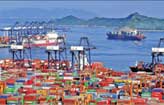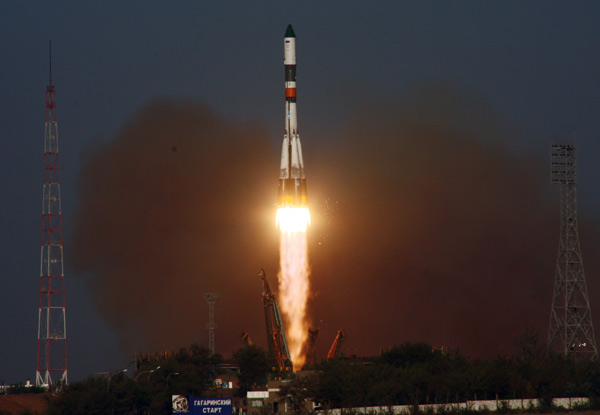Diplomatic and Military Affairs
Russia's space ship crashes into Siberia
Updated: 2011-08-25 11:20
(Xinhua)
A Russian Progress cargo ship crashed into Siberia after failing to reach the right orbit Wednesday. The crash marked the second failure in space launch in less than a week and the third in this year, prompting local media to suspect a major reshuffle in Russia's space industry.
UNPRECEDENTED FAILURE
The Progress M-12M unmanned freighter was launched to the International Space Station from Baikonur space center in Kazakhstan on Wednesday. It was expected to reach a near-Earth orbit in about nine minutes after launch.
However, after the 325th second of the flight, which was just a few seconds before the vessel should reach the orbit, the ground control center lost it.
Russian space agency Roscosmos confirmed later that the cargo ship failed to reach the orbit and fell down.
The malfunction of the Soyuz-U rocket's engine was generally believed to be the cause of the accident, according to local media.
A source in the space industry said the spaceship had sent a breakdown report while separating from the Soyuz rocket.
Some unconfirmed reports said the fuel tank of the booster leaked and the engine was automatically turned off to avoid explosion.
The wreckage of the Progress cargo ship has already fallen in southern Siberia's Altai Republic, where a big explosion was heard by locals, reported RIA Novosti news agency.
A state investigation committee has been formed to look into the first ever loss of a Progress freighter.
CONCERNS OVER FUTURE
The unprecedented accident raised concerns over the reserves of the six crew members on board the ISS.
The ship was loaded with over 3.5 tons of supplies for the ISS, including scientific materials, oxygen, water and food.
According to Russia's Ground Control, the loss of these supplies will not affect the ISS crew as there are enough stocks of necessities for two to three months.
Also, there is no need for premature return of the crew, said Vladimir Solovyov, a space official.
However, it still casts some shadow over the ISS program that relies on Russia exclusively following the retirement of U.S. shuttles.
A source from the Russian space industry said the scheduled launches of the Soyuz rockets are likely to be suspended until the reasons of the accident are established.
This means that current crew members of the ISS would likely stay longer in the space than planned, as the new members might not be able to replace them on schedule, the source explained. Solovyov said the launch of the next Progress is scheduled for October 28.
So far, Roscosmos has refrained from comments regarding the possible halt in manned missions aboard Soyuz carrier rockets.
"Comments will follow. Now it is necessary to determine the causes of today's abortive launch of a Soyuz-u carrier rocket with the Progress M-2M transport ship," Roscosmos told Itar-Tass news agency.
Local media raised the prospect of a major reshuffle in Russia' s space industry as the country has lost a total of six space vehicles over the past nine months.
On Aug. 18, a carrier rocket Proton-M failed to deliver to the orbit communication satellite Express-AM4. Earlier in February, Russia had lost a satellite named Geo-IK2.
In December 2010, a booster malfunction resulted in the loss of three satellites in the global positioning and navigation system GLONASS.
E-paper

Blue economy gets a lift
Coastal areas of Shandong, Zhejiang and Guangdong to spearhead sector development.
The light touch
Long way to go
Outdoor success
Specials

Star journalist remembered
Friends, colleagues attended a memorial service to pay tribute to veteran reporter Li Xing in US.

Hot pots
Tea-making treasures catch the fancy of connoisseurs as record prices brew up interest

Hear we go
Polish Audiologist helps thousands of Chinese hear for the first time.

